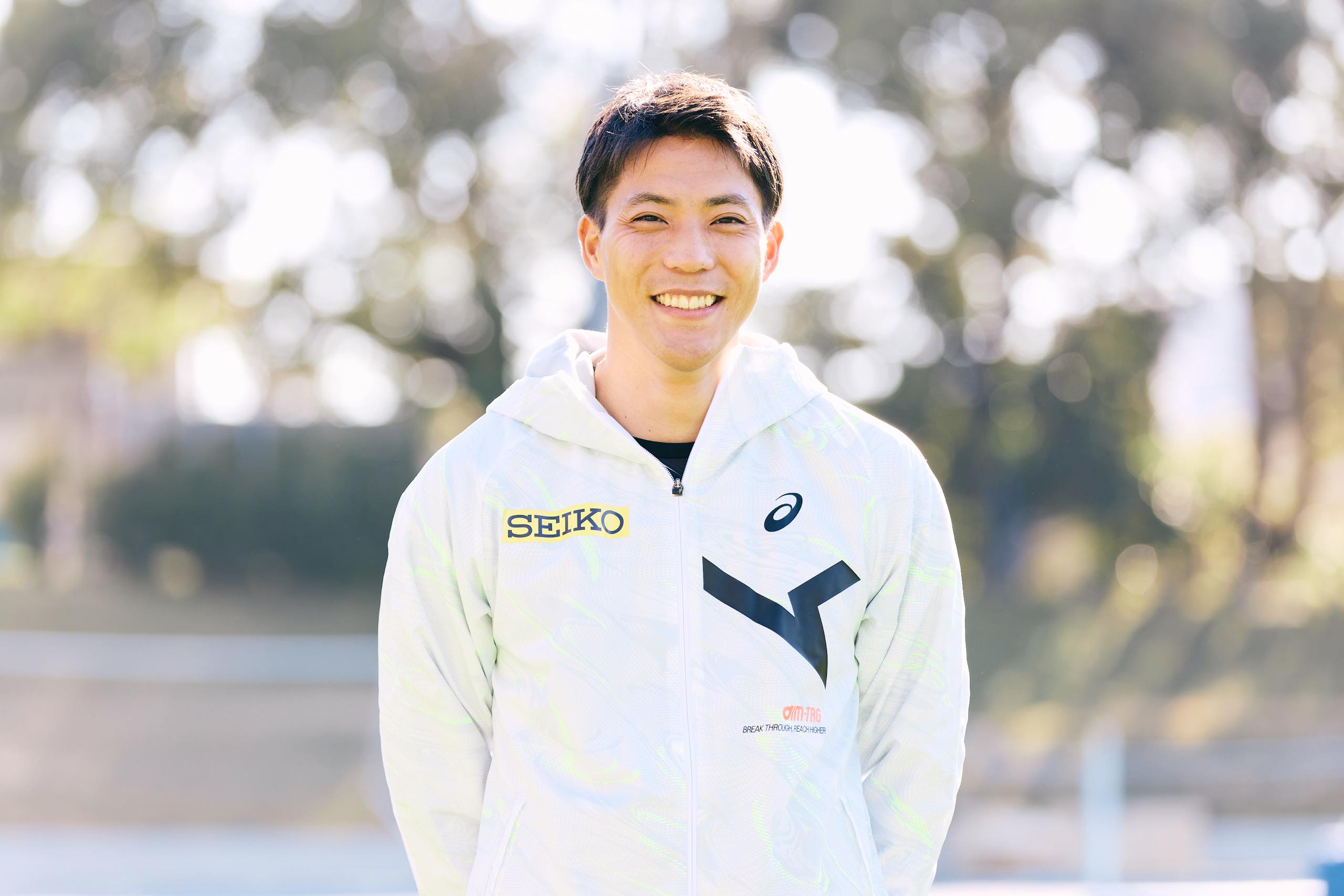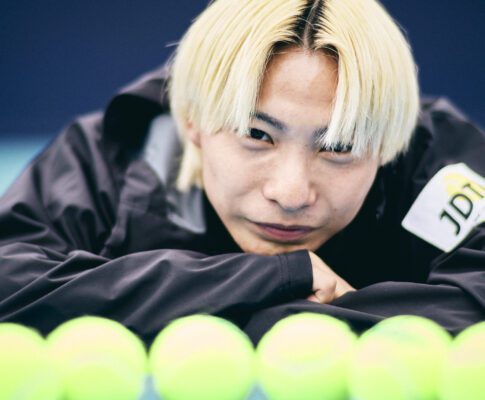目次
- I’ve run away from a dog before.
- Tokyo 2020 that made me think
- Small signs from the body
- Things that get heavier. Things that get stronger.
- Everything I have ever done has been for this.
- “I kind of want to knead pasta.”
- Conditioning = Playing games and the piano?
- The athletes he thinks are geniuses as a sprinter.
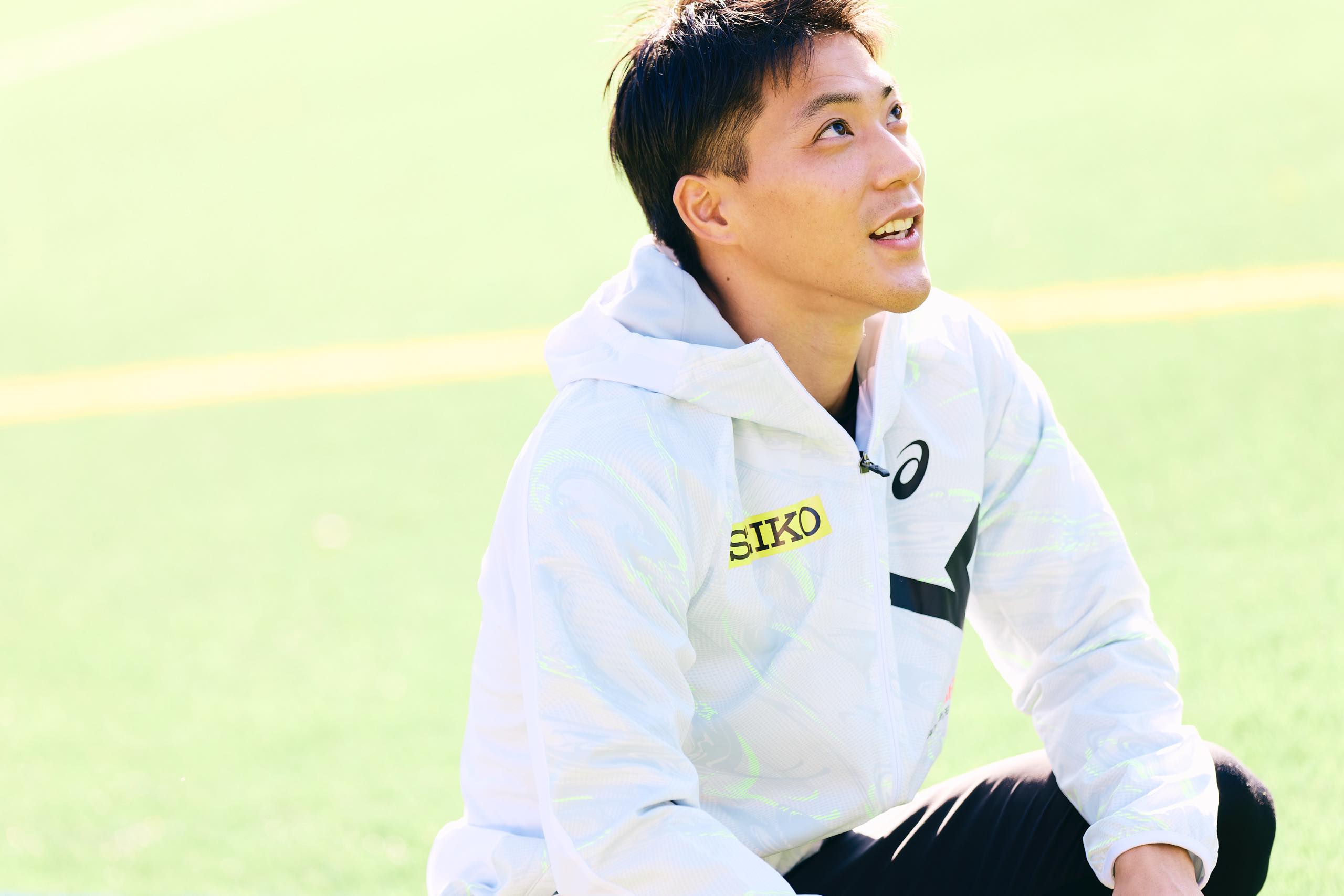
Ryota Yamagata
Born in 1992 in Hiroshima Prefecture. Men’s 100m Japanese record holder (9.95 seconds)
After graduating from Shudo Senior High School and Keio University, he joined Seiko Group Corporation in 2015. He was the first runner in the men’s 4x100m relay at the Rio 2016, helping the team win the silver medal. As an individual, he is the fastest sprinter in the history of Japanese athletes at the Olympics. He served as the captain of the Japanese team at the Tokyo 2020.
His personal best of 9.95 seconds, set in June 2021, is still the fastest record in the Japanese men’s 100m world, which is still unbeaten. He has recovered from a right knee injury and will run again at the Paris 2024 and the World Athletics Championships Tokyo 25.
I’ve run away from a dog before.
――When did you realize how fast you were?
When I was 10 years old, I participated in an athletics meet in Hiroshima City and won the championship. The qualifying time was 15.01 seconds, and the final was 14.80 seconds. It seems it was a competition record in the 4th grade division, and that’s when I realized how fast I was. Also, when I was a kid, I used to go fishing with my father, and I was chased by a dog there…I was able to run away from a chasing dog.
――That is amazing. When did your desire to aim for the world in athletics begin to grow?
In my second year of high school, I was selected to represent Japan at the World Youth Championships in Athletics, which I participated in my first international competition. There were many strong athletes in that generation, and although I had injuries, I was able to do quite well, finishing fourth in the 100m and third in the relay. At that time, the dim idea of “aiming for the world” became a “goal” for me.
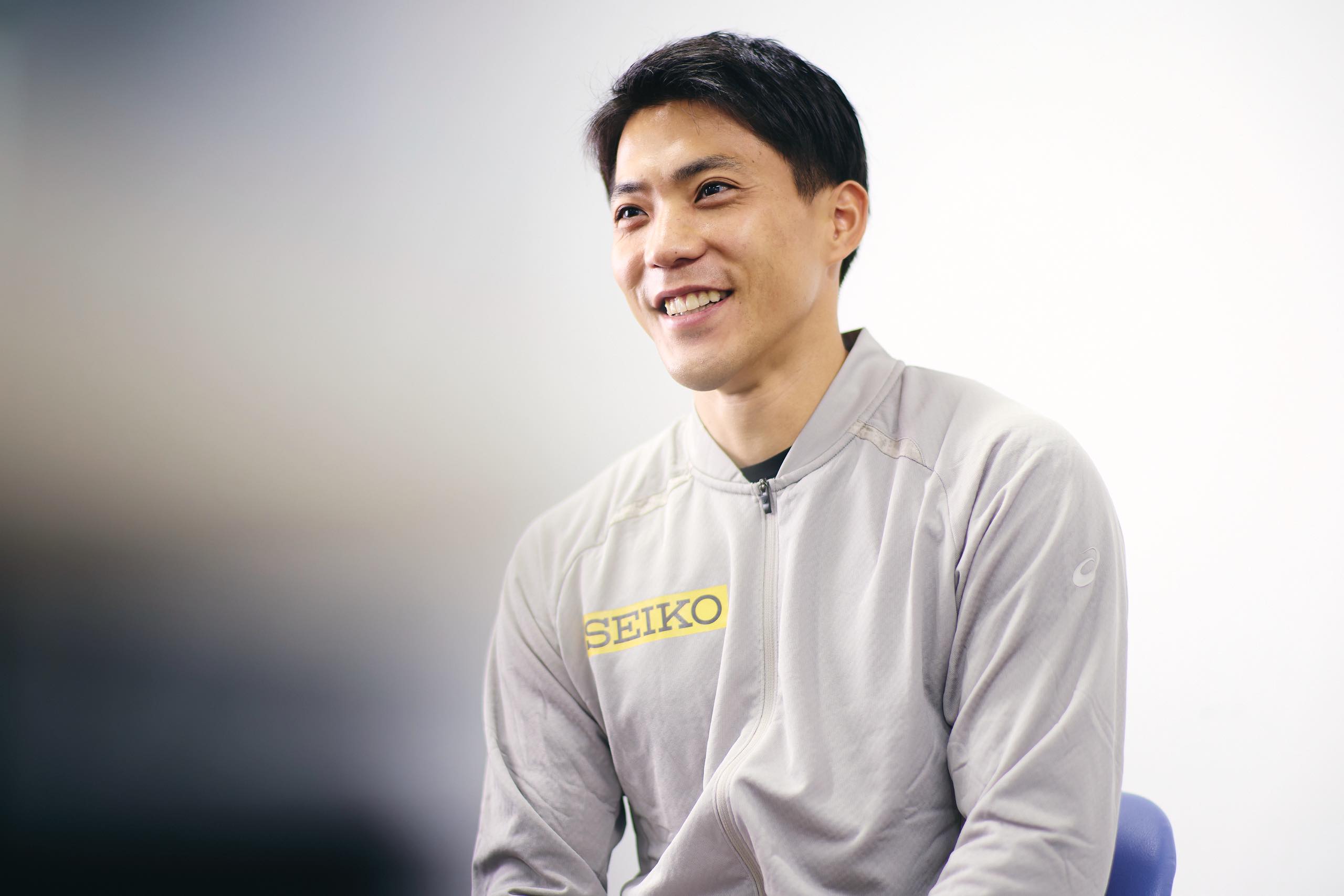
Many records established since that time
――What are some of the events that were turning points in your competitive life?
I was 19 years old when I ran 10.08 seconds at the Mikio Oda Memorial International Amateur Athletic Game in April 2012. I had just corrected my stride and pitch balance at the Japan National Team training camp prior to the tournament, receiving advice from renowned seniors such as Nobuharu Asahara and Hiroyasu Tsuchie, who were there as coaches. After entering university, there were times when my record did not improve as much as I expected, and I was always worried about whether I could really break the 9-second mark and whether I would be able to do so in the future. However, after I ran 10.08 seconds, those worries were replaced with a determination that “I was going to make it in the world”. At that time, I broke the entry standard for the London 2012 for the first time, and I realized that I had reached the point where I could participate in the Olympics.
Tokyo 2020 that made me think
――You have participated in three Olympic Games so far. Your run in the 4x100m relay at Rio 2016, where you won the silver medal, is impressive. How do you feel about it?
It is not so often that you can go into a big competition like the Olympics in good condition. At Rio 2016, with the support of many people, I was able to improve my time to 10.20 seconds in the qualifying round and 10.05 seconds in the semi-finals, which was a new personal best. Every time I ran, my condition improved, and I was able to get to the starting line in very good shape for the relay final. After overcoming injuries, I had a good balance of experience and youth. I was able to challenge the competition as a more evolved version of myself, working on my weight training.
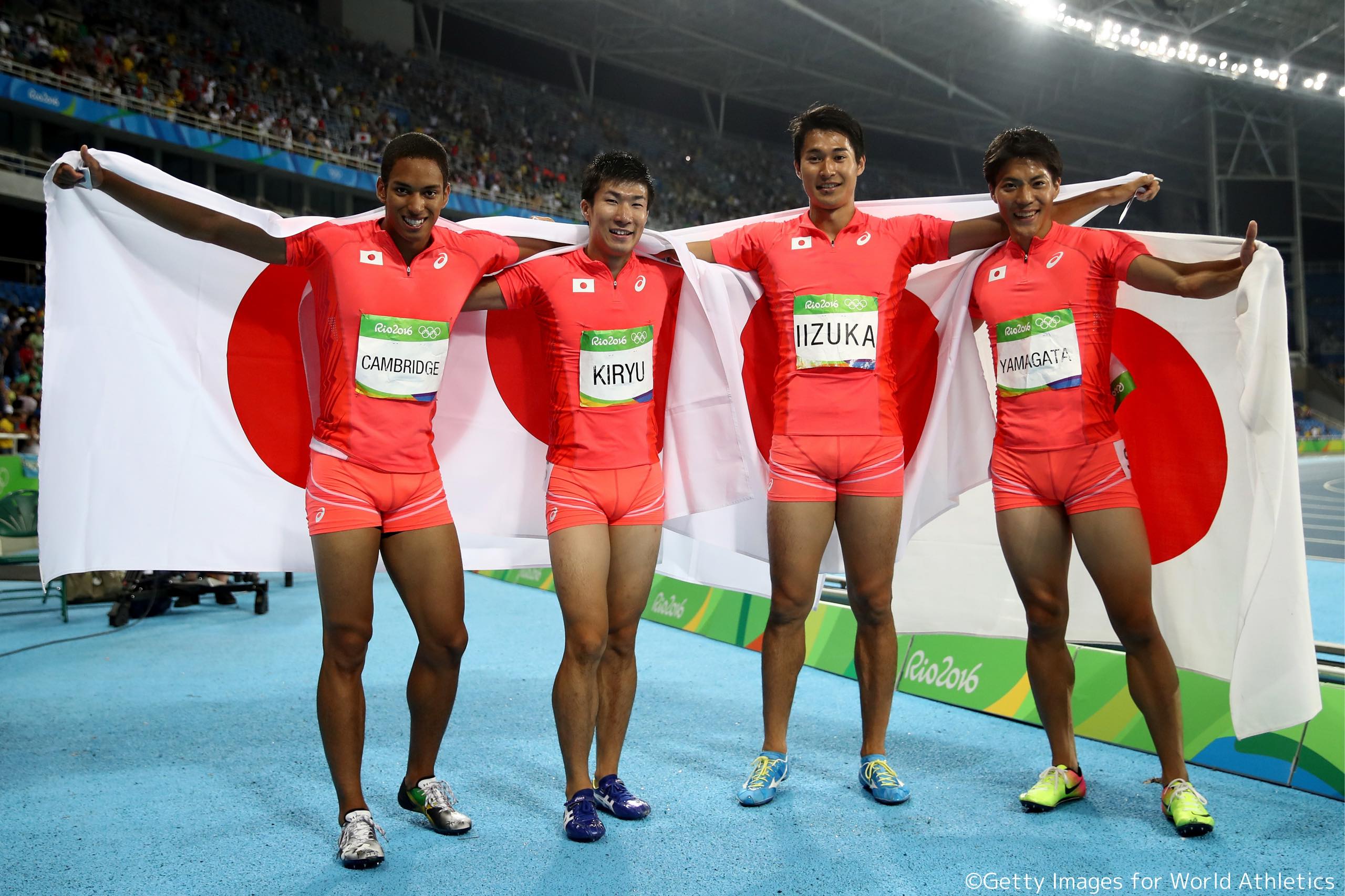
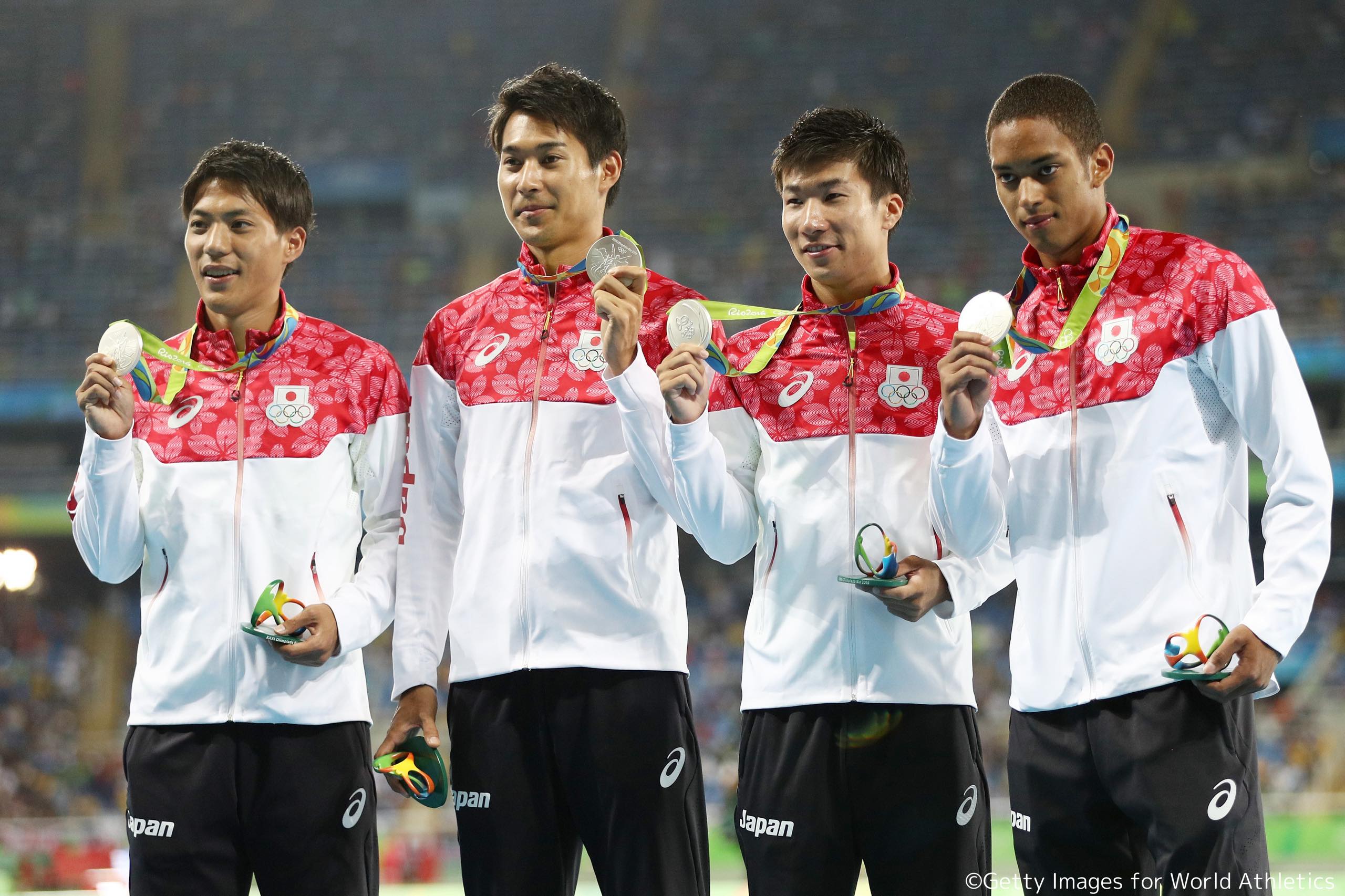
as the first runner of the 4x100m relay
――You were also the captain of the Japanese team for the Tokyo 2020.
The Olympics made me think about many things…In June, before the competition, I ran in the 9-second mark for the first time, but I also had knee pain and felt like my body was reaching its limits. Since I was controlling the amount of practice, I was also worried that I would be in pain during the race. In addition, because of COVID-19, there were a lot of negative opinions about hosting the Olympics. I myself have always wondered “what is the value of sports?” and “what is the Olympics?”. It was my honest opinion that “running is a part of my job, and if there is a possibility that I can do it, I want to run”, but I didn’t know if that was a good thing or not, and it really bothered me…
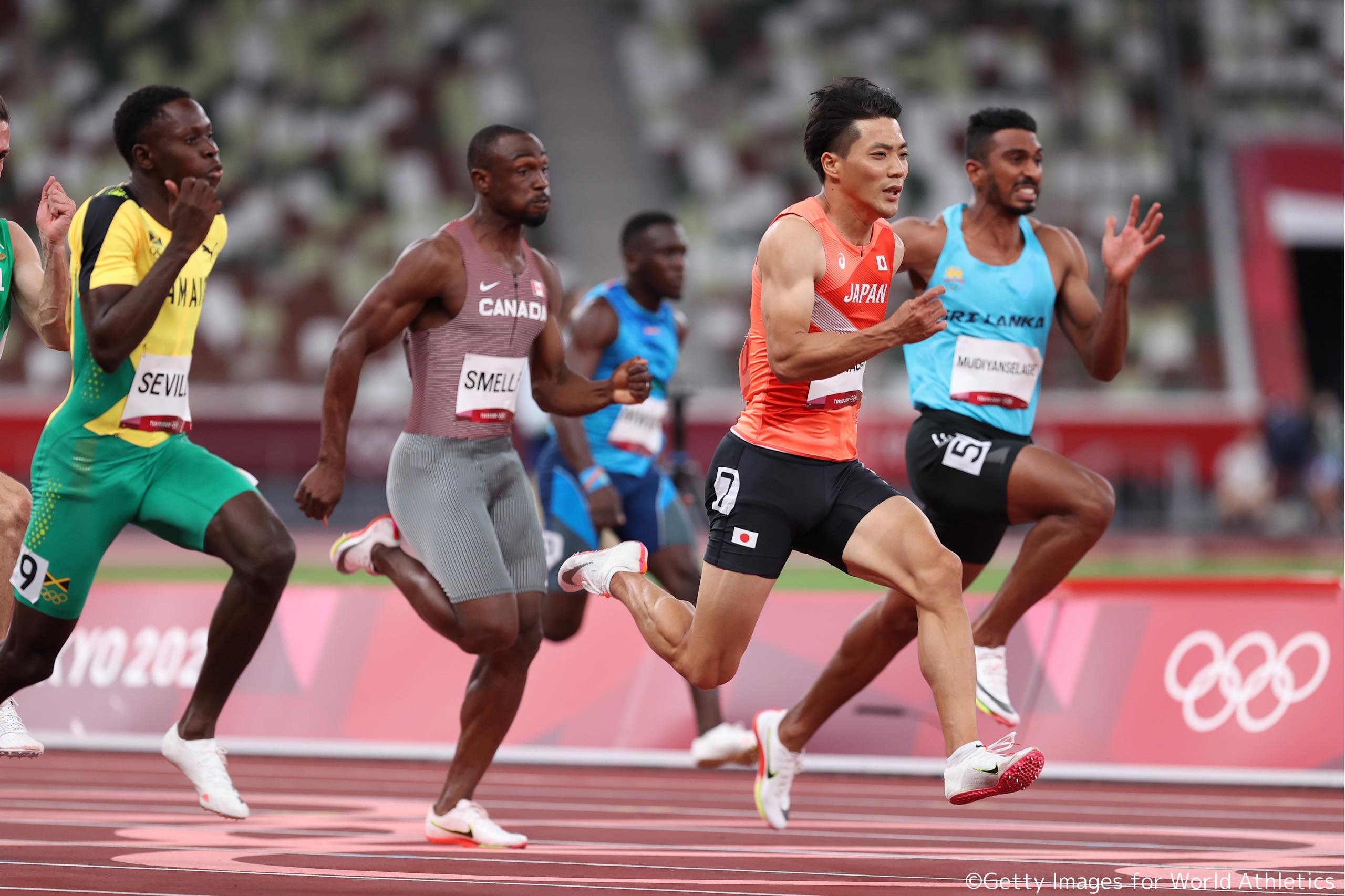
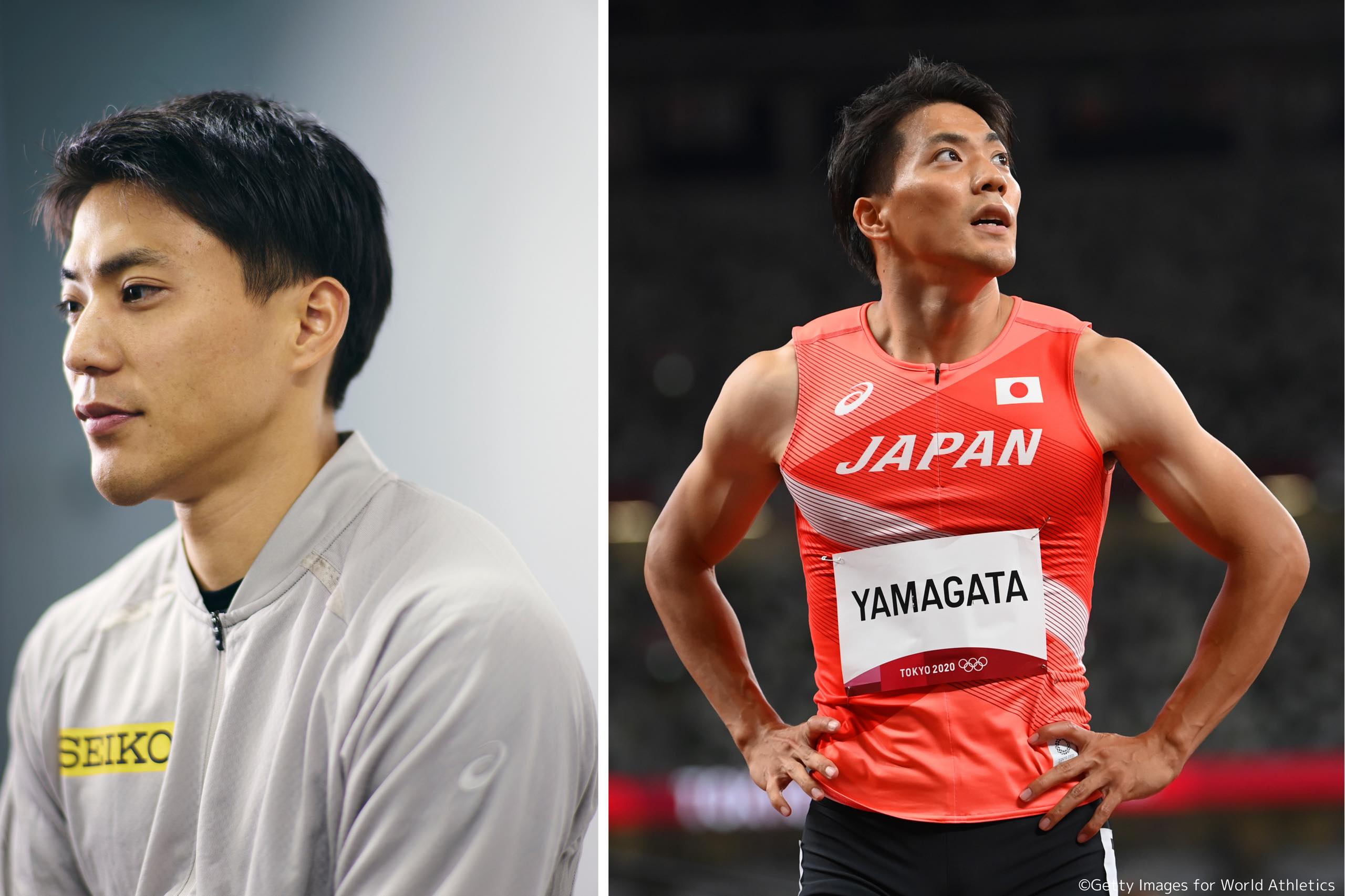
The summer of 2021 that also opened his eyes to the value of sports.
――The 9.95 seconds marked before the Tokyo 2020 is still a Japanese record. What was the difference in your running when you set that time?
I liked the “rhythm” of the run. I have always imagined a rhythm that would allow me to perform at my best, and in this race, I was able to do just that. When I am conscious of time and competition, I often lose my rhythm and my running becomes disjointed, especially in the middle and second half of the race. I was able to keep a constantpace without rushing there. It was a very good race, and I felt satisfied with what I had done up to that point.
Small signs from the body
――I know that facing the records can be mentally painful. How do you face yourself on a daily basis?
That’s exactly how it is right now. I am conscious of not overlooking the small signs that appear from my body. I think this is very important in terms of preventing injuries and improving the quality of practice. I face my body on a daily basis and determine what signs my body is giving me. If I don’t constantly keep my eyes open, I’ll miss it and end up over-practicing. Every time I get injured, I think, “I missed that sign”. Such signs from the body are hard to see unless I face myself.
――Have you seen any such signs recently?
I had a moment of discomfort while weight training in February. It didn’t affect my immediate practice, but later my running got worse. I noticed that my lower back and buttocks muscles were tense and I had some kind of nerve pain. I continued to practice in March, but finally the symptoms started to appear. As I look back on those moments, I think my body was giving me signs in February. If I had realized this, I could have switched my practice methods from high-intensity weight training to the training that uses the core and center of the body. Once the symptoms appear, they can lead to serious injury in some cases. I sometimes think the injury could have been prevented if I had not overlooked the body’s small reactions and had used my imagination to see “what would happen if I continued this training”.
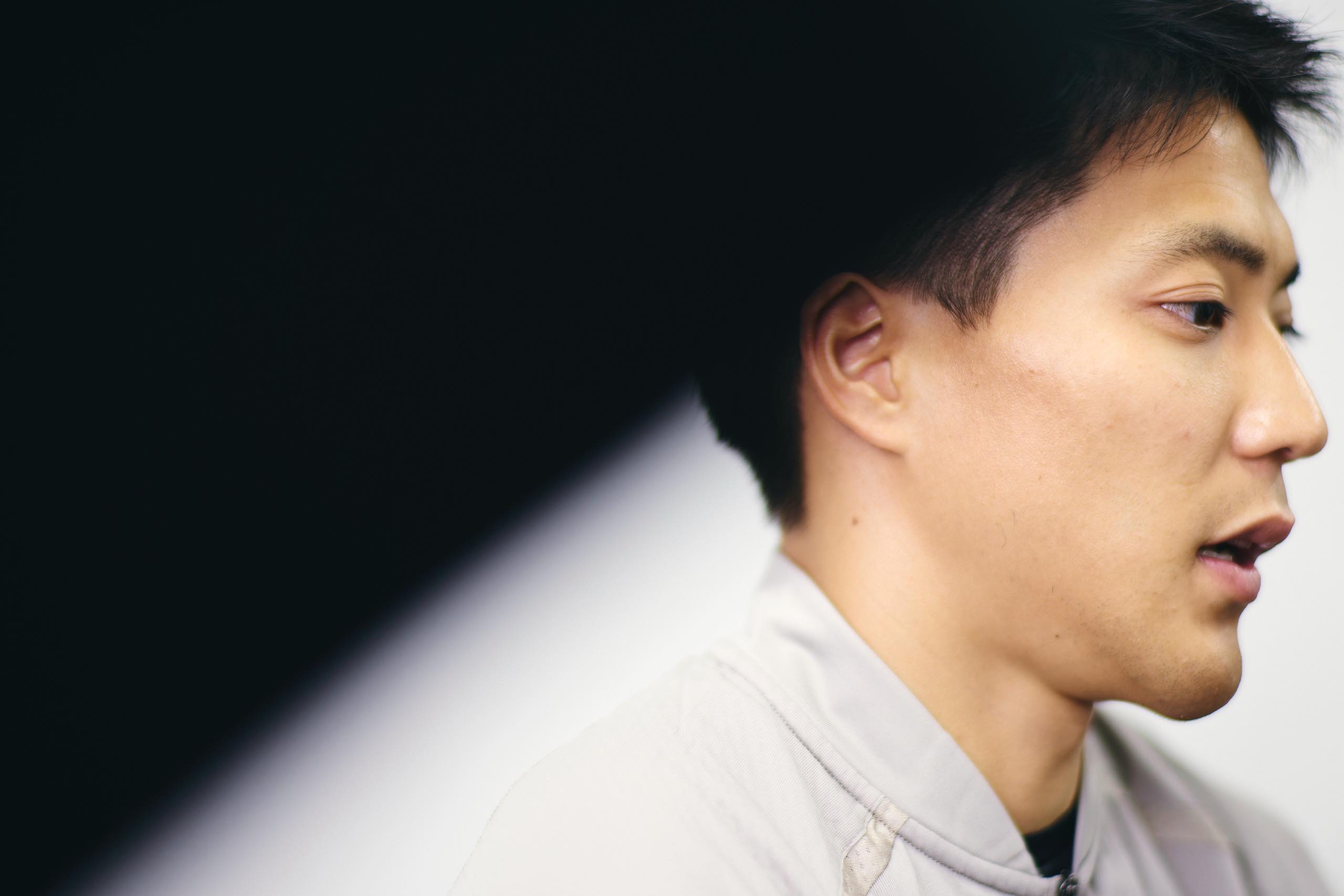
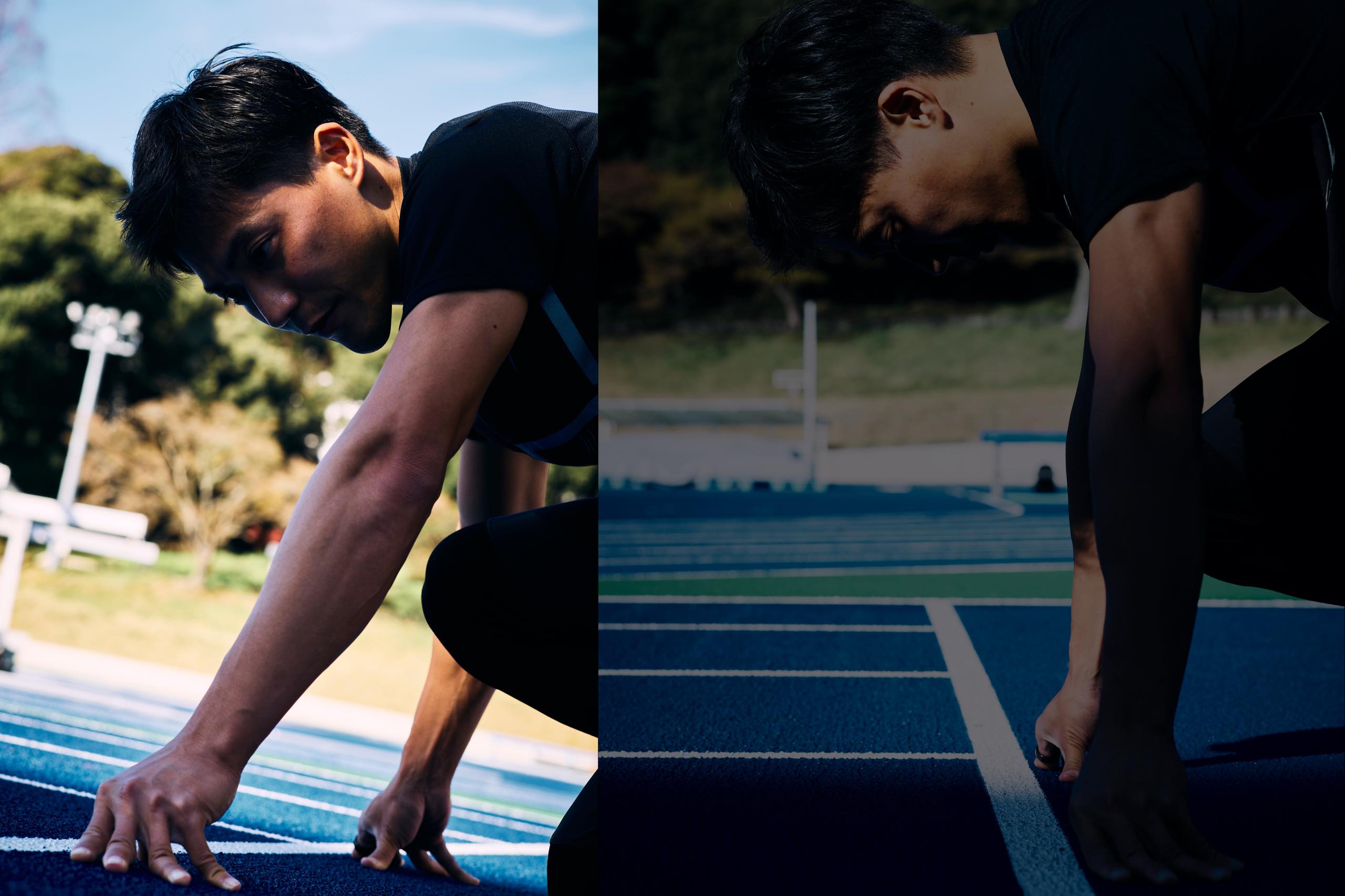
Things that get heavier. Things that get stronger.
――What have the past three years since the Tokyo 2020 been like for you?
That was a very patient time! I’m getting older and my body doesn’t move as much as it should or recover as well as I would expect. I honestly feel that I can’t practice like I did in the past. I had set a Japanese record, and as I gained more experience, I had a lot of things weighing on me in terms of running. Only those things are getting heavier. But I think it is necessary and not a bad thing. It is different from how I felt when I was 20 (London) or 24 (Rio), and Tokyo at the age of 29 was difficult, but I have a feeling that the Paris 2024, which I am aiming for at the age of 32, will be even more difficult.
――After the Tokyo 2020, I think you have been battling with injuries
I still felt very positive. The injury was something that had to happen, so I think what I could take from it and how I could change myself. After the Tokyo 2020 Olympics, I stay with that mindset, even after my knee surgery, I imagine a bright future ahead of me, saying, “I am sure this part will get better,” and “I will be able to run like this”, and I have come this far. My weight training numbers are going up, and one of the things I look forward to is being able to say that “I am getting stronger and growing”.
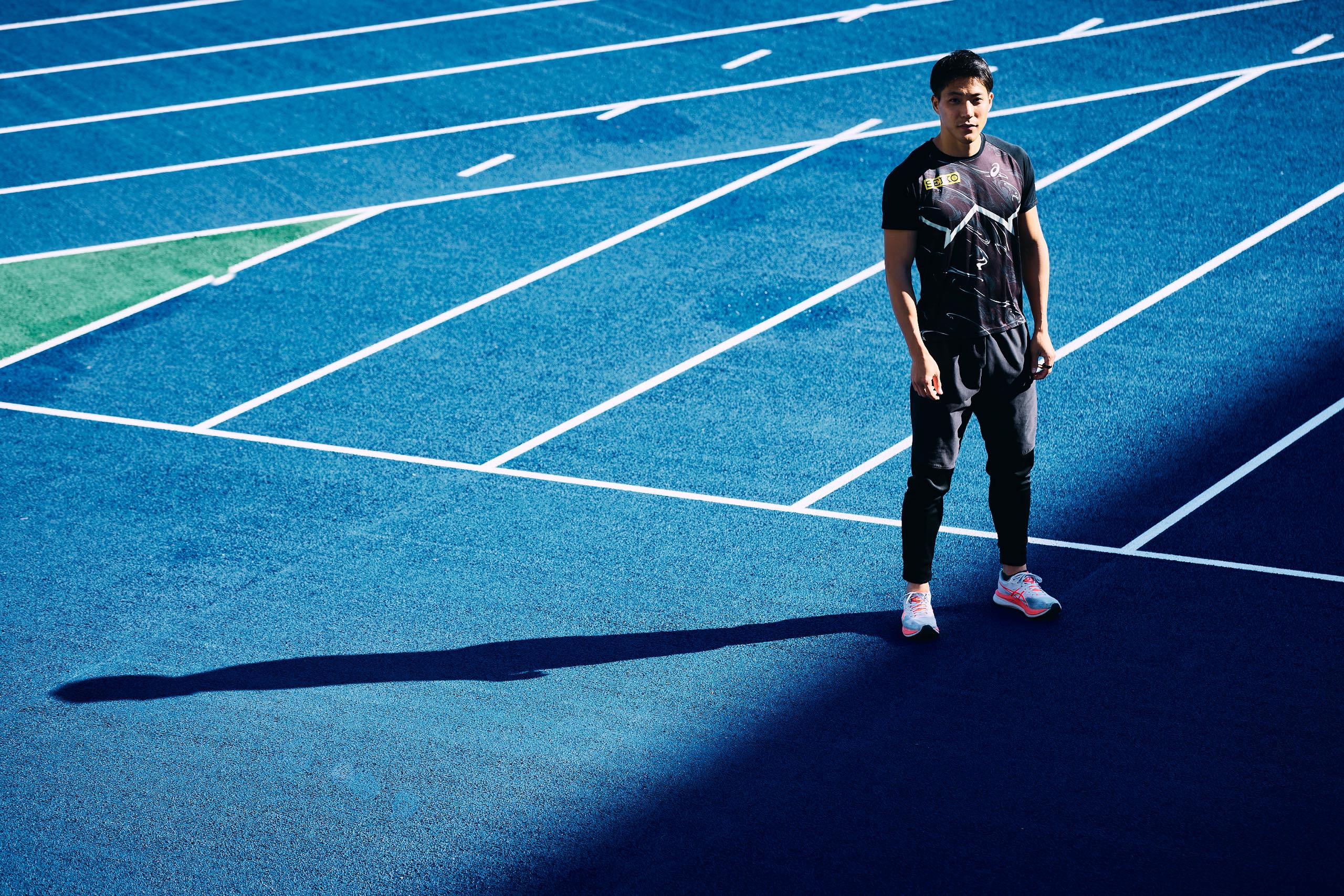
So there was definitely something to be gained from that.
Everything I have ever done has been for this.
――The Paris 2024 will be held this year and the World Athletics Championships Tokyo 25 will be held next year. Do you have any kind of roadmap for the future that you think about?
I have only participated in the World Athletics Championships once, in 2013, and have not achieved any results. I would love to participate in the World Athletics Championships Tokyo 25. Of course, I will not only participate, but also demonstrate the strength of mind and body that I have cultivated. I want to achieve a result that says, “This is what everything I have done up to this point has been for.”
――What do you feel is the significance of the World Athletics Championships being held in Tokyo?
Just watching the athletes running, or even watching them walking nearby, is very powerful. I would like everyone in Japan to see that kind of “real performance”. They should feel very cool! That’s not the world on the other side of the TV. There is a chance for people to feel it right in front of their eyes and close to them. As an athletics athlete, I would be happy if as many people as possible thought it was cool.
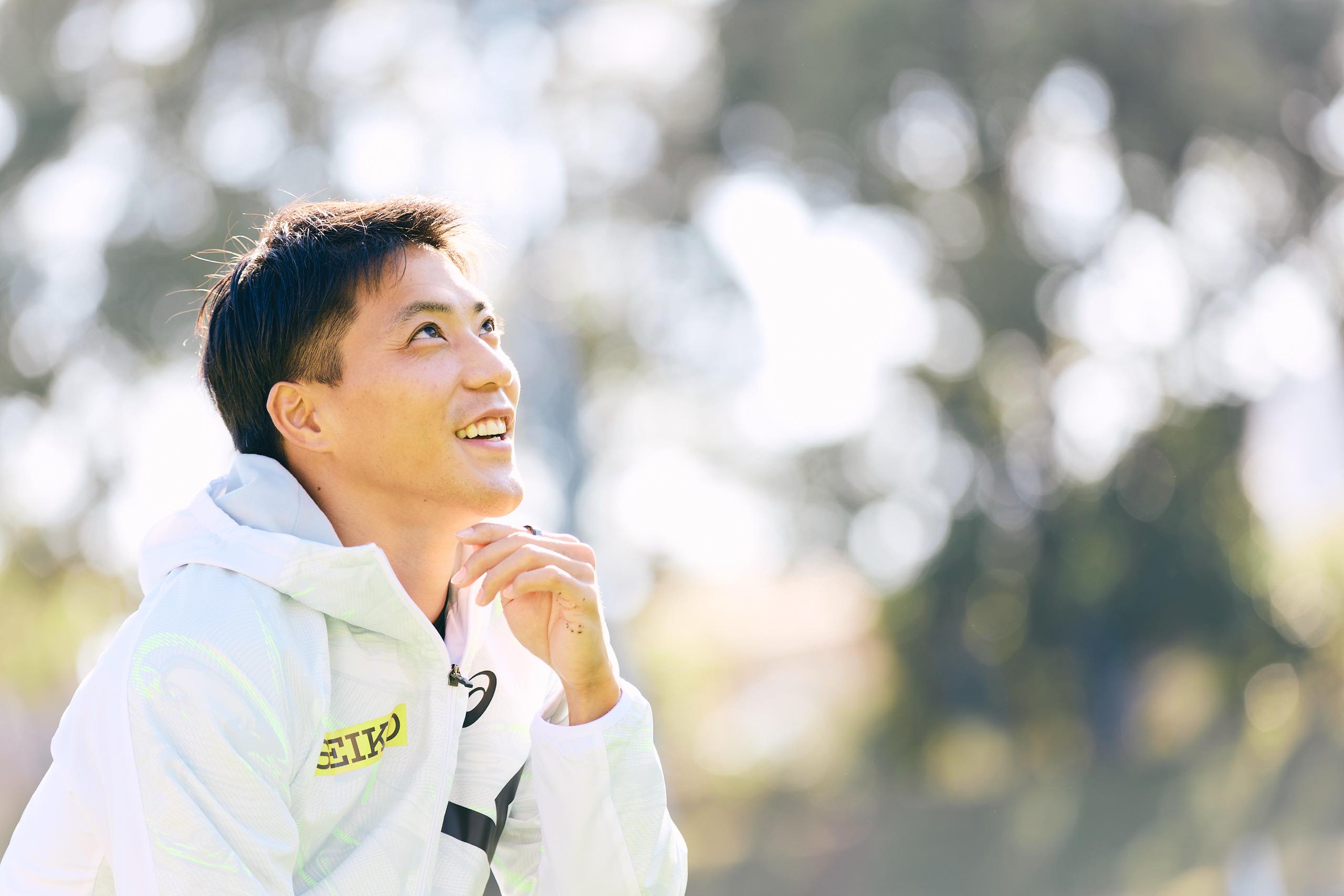
The moment when he, as an athletics fan, peeked in.
――What are your goals for World Athletics Championships Tokyo 25?
My goal has always been to “make it to the finals,” but when I say that, it puts a lot of pressure on my shoulders! I think it’s better not to say it these days. However, I am at a good old age and want to achieve good results. The one thing I haven’t accomplished in the World Athletics Championships is ‘making it to the finals in the individual events’. I don’t know how many years I have left in my competitive life, but I want to build up the “present” which I can say I gave my best effort to get there. If I can reach the 9-second mark, I will achieve it, and I will have no regrets in my competitive life.
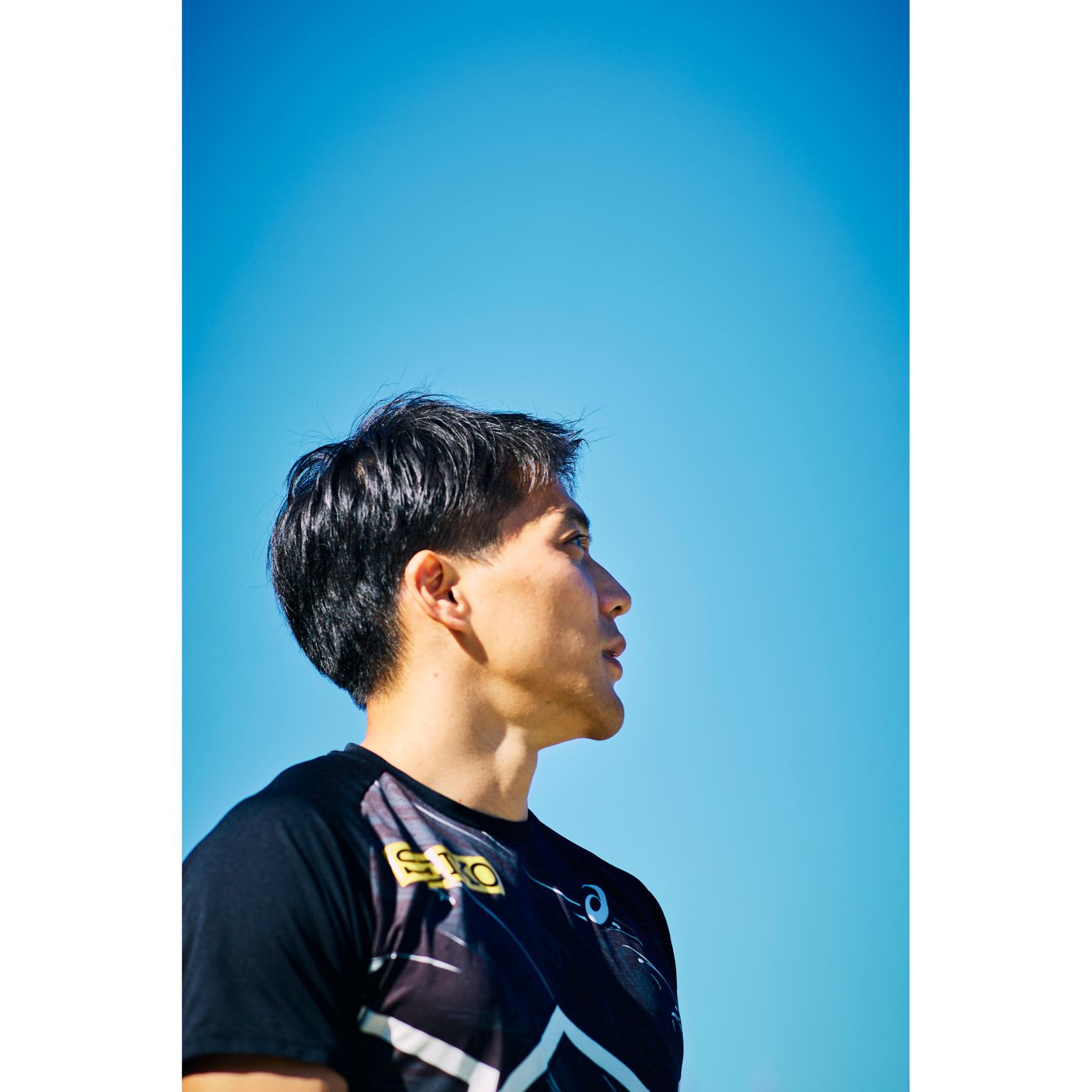
“I kind of want to knead pasta.”
――Let me ask you about your personal life. How do you often spend your days off?
Basically, I rest my body. No matter what I’m doing, I’m always thinking, “will this affect my practice tomorrow?” so I stay home most of the time…I cook a lot at home. I enjoy thinking, “what shall I cook today?”. When I can’t come up with anything, I just keep making the same dishes, but sometimes it just falls from heaven.
――It’s amazing what can fall from heaven!
No, it’s not that big of a deal. Suddenly, I felt like “I wanted to knead pasta”. Yesterday (the day before the interview) it fell down again and I made pasta. Recently, I have been studying by watching cooking videos. Mix the potatoes, boil the gnocchi for a minute or two, and I can eat it rather quickly. Now I just need to figure out what to do with the sauce, but I like to dry tomatoes. It is quite difficult in summer because mold can appear. I have made a lot of it before because I had a lot of tomatoes. I’d be happy to make such a sauce with leftovers.
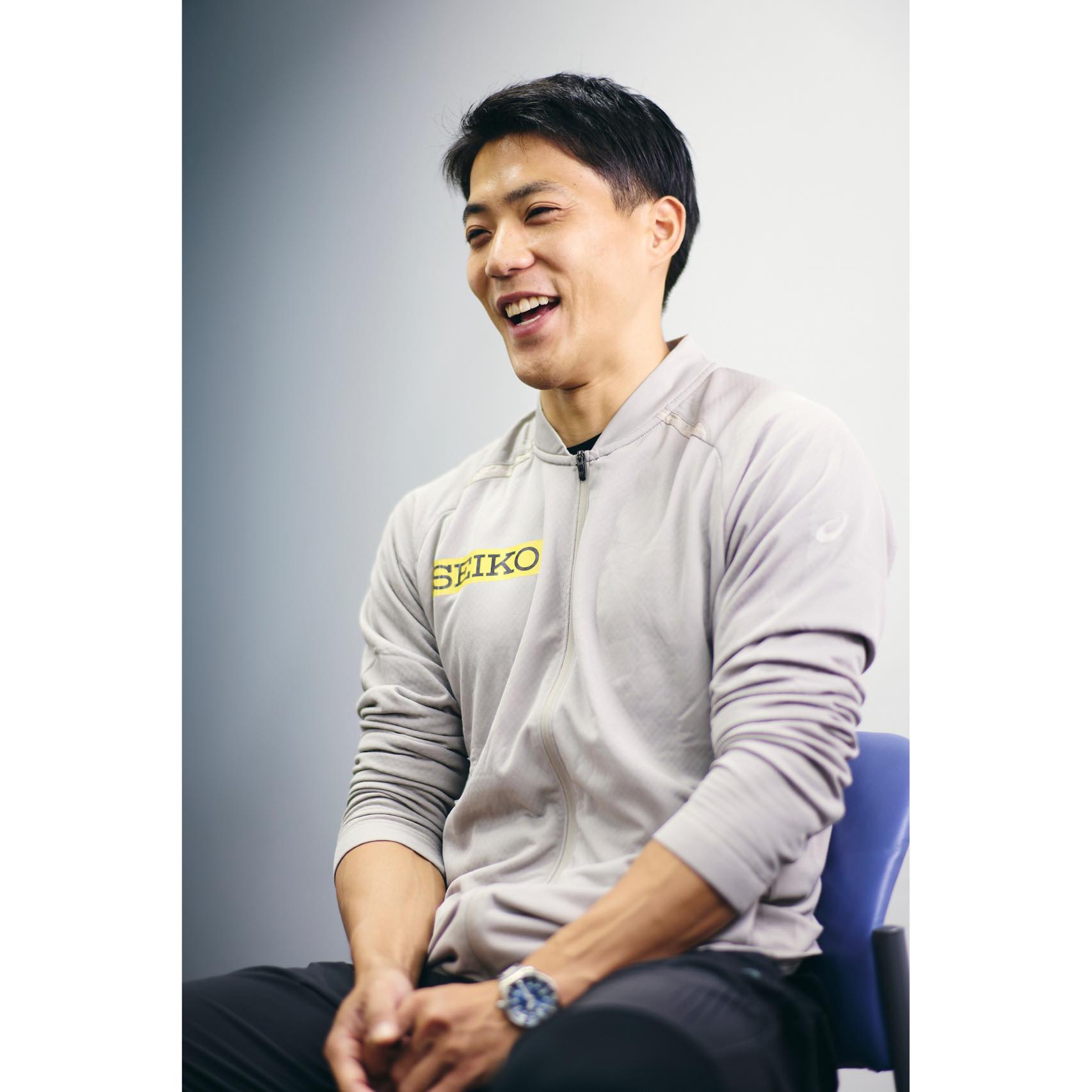
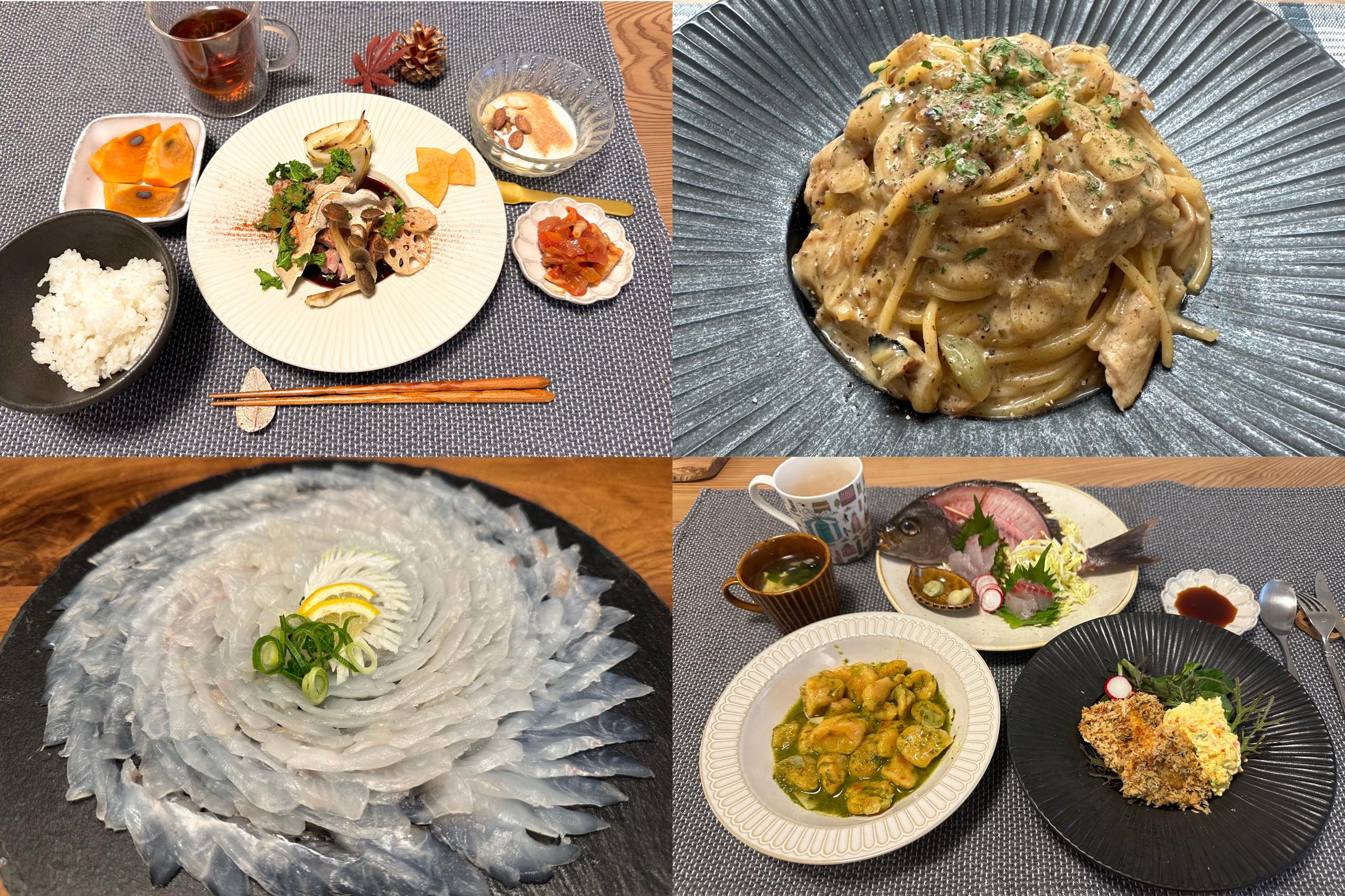
*Courtesy of Ryota Yamagata
――Is there a particular dish you are good at?
Well… I don’t have anything in particular, but I try to cook Japanese, Western, and Chinese food. The pasta I just mentioned was really good being made with leftovers. If it’s something that’s around, I can cook just by using my imagination.
――I see from your SNS that you are also particular about the plates.
I like it…When I go shopping, I get excited when I see plates around the kitchen. If I see any, I do not hesitate to enter. It’s like “I don’t have this plate in this shape”, or “I’ve never seen this shape before”. Now I have ended up to be particular about tables! But my favorite area is limited and I would like to broaden it more.
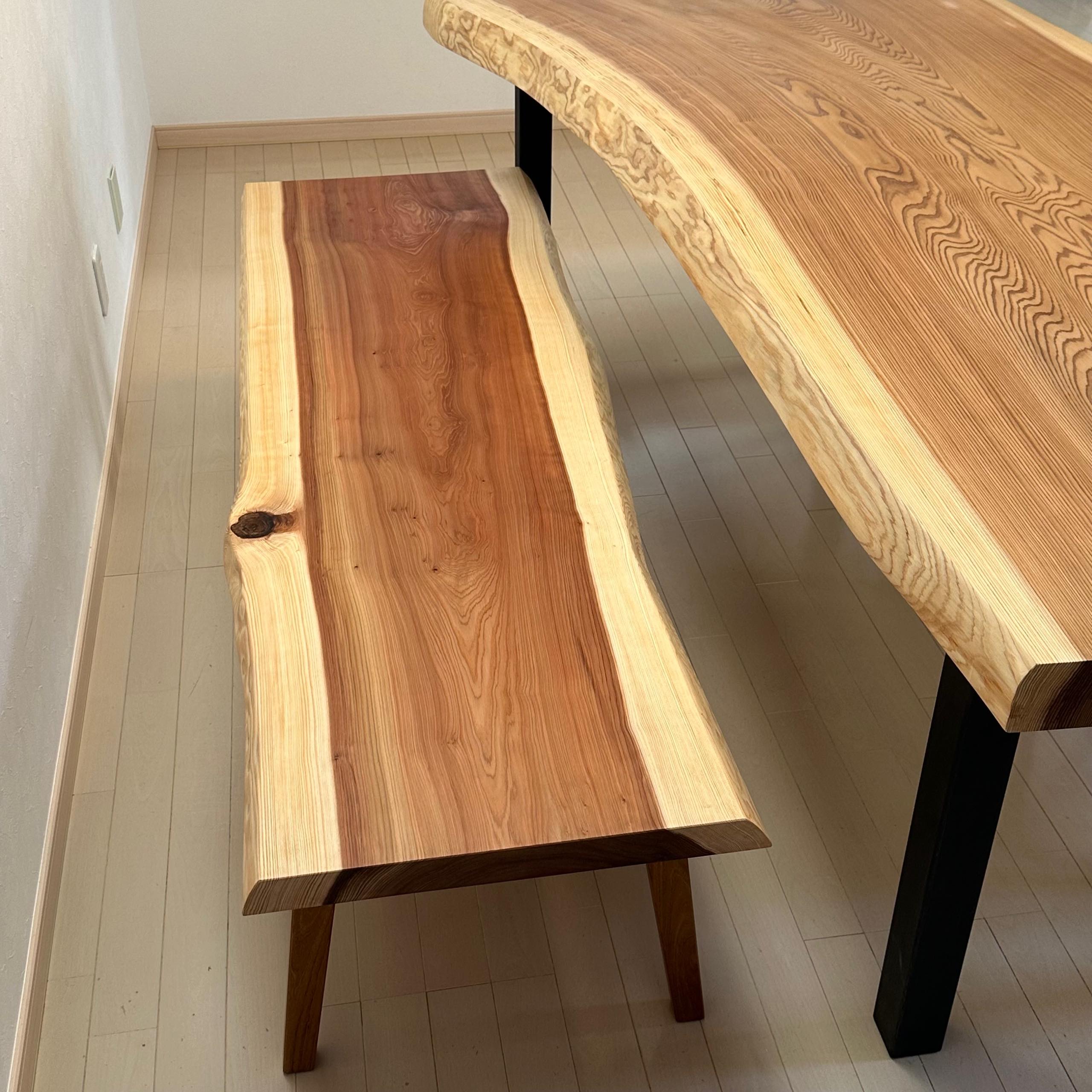
and the tables and chairs.
*Courtesy of Ryota Yamagata
Conditioning = Playing games and the piano?
――What are you into these days?
I’ve been in love with games, and it has recently come back again. I’m playing a game again that I completed before, and what I like about it is that I can get “immersed” in it. When I’m not doing anything, I think about the competition 24 hours a day. That makes me very tired…Some people may think they have wasted their time when they are immersed in playing a game, but it leads to conditioning for me. I’m glad I was able to enjoy it without moving my body.
――What kind of games are you playing?
Dragon Quest. I have already cleared this game once, but I repeat it with other elements! Basically, I like RPGs. I don’t play fighting games because I get stressed out when I lose.
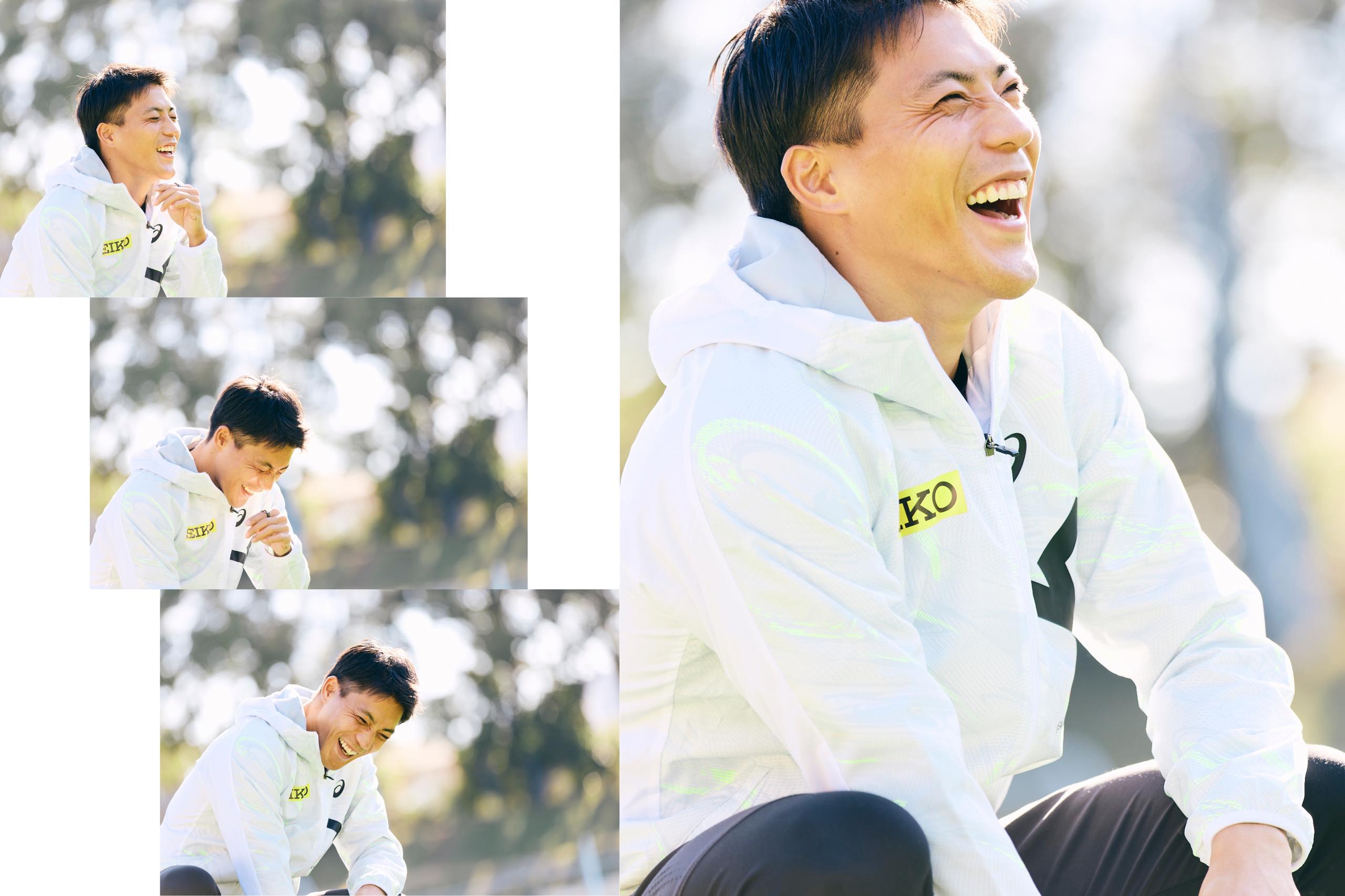
“Immersion” refreshes the mind and body.
――You have posted on SNS about your piano playing, how did you get started?
I started when I was spending a lot of time at home due to the COVID-19. I’ve had a passion for musical instruments, and at first I thought I’d be satisfied if I could play one of my favorite songs. But after I started playing, I was no longer satisfied with just memorizing a piece of music. I was stressed out with myself that I couldn’t play it again when I stopped in the middle, and I knew that the only way to get better at this was to learn how to read the sheet music. A sense of rhythm is important in running as well. In this respect, I have no sense and cannot catch complicated rhythm with my body. I thought it would be good to start with the basics, so I started playing the piano.
――Are there any songs that you have learned to play?
No, I have not. The only song I say I can play is the jazz version of the theme song “Become the Wind” from the Ghibli movie “The Cat Returns”. Jazz music has an original song and it is possible to arrange it as you wish, but I can only do what I have arranged. The reason why I chose this song is because I like Ghibli. But it took me about six months to master it, and it was hard work. I don’t practice for a long time every day, and I guess we need to I have a natural flair for it.
The athletes he thinks are geniuses as a sprinter.
――Who would you recommend as a player other than yourself?
There are a lot of talents in 100m. The one I have been saying is Hiroki Yanagita. The other is Taju Hongo, who raced with me in Australia the other day. He is interesting. His best time is 10.12 seconds and he has been practicing in New Zealand since the beginning of this year. He apparently practices alone and I think, “how can he have a long training camp by himself?”. I personally like his mentality and the way he uses his body. I think he has potential to growth and I am interested in him.
――Who are your closest athletes?
It’s Shunto Nagata, who practices at the same place, and Bruno Dede, who also belongs to same SEIKO. Watching him up close, I have a feeling that Shunto will do his best in weight training and beat his time. Dede is a very good guy. He is serious and doesn’t give up even when things aren’t going well. He is the type of person who patiently searches for that trigger to get back in shape. I am inspired by the fact that I cannot lose to him.
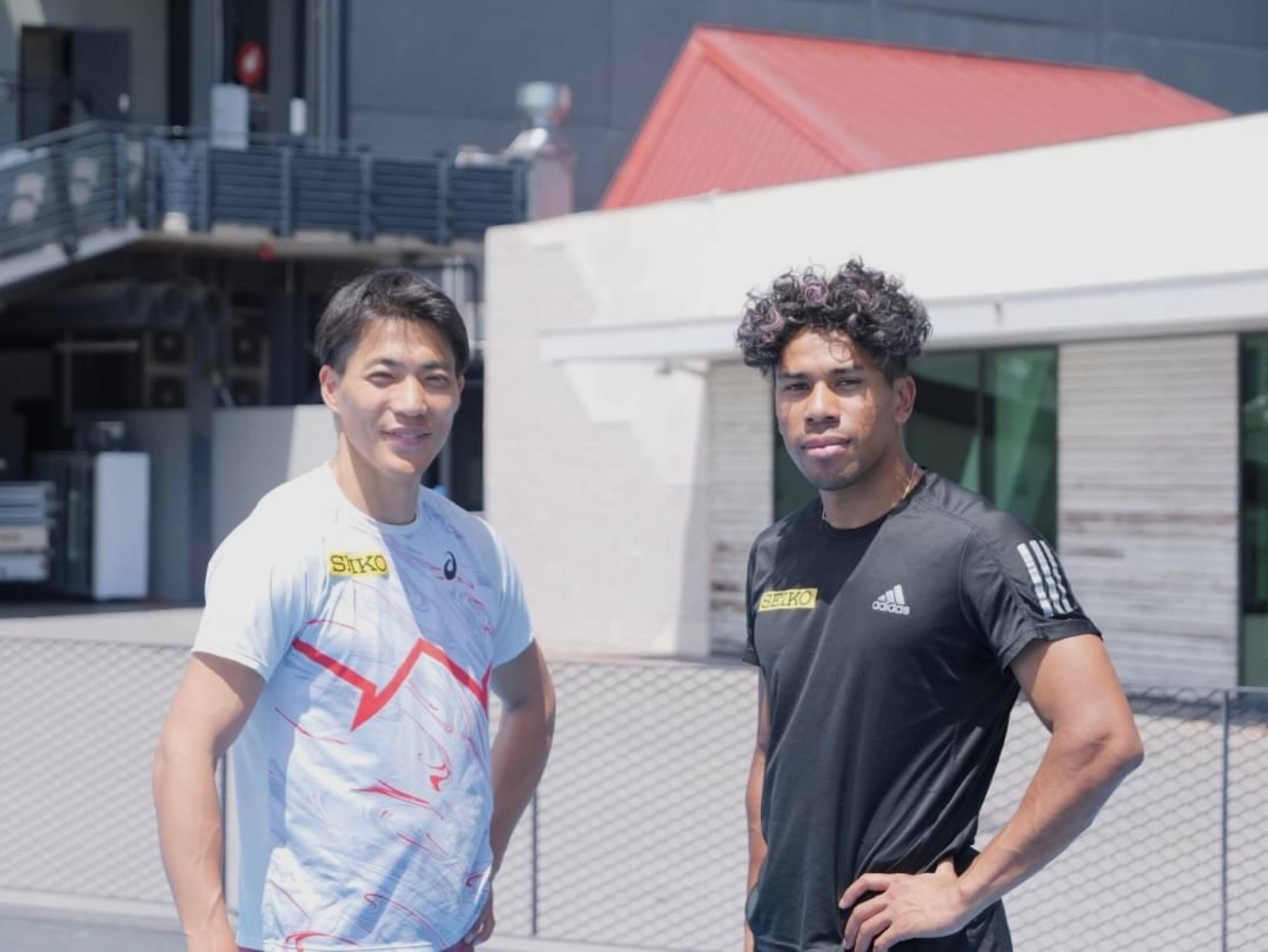
With Dede, who is his good friend.
*Courtesy of Ryota Yamagata
――How do you feel about the athletes you competed with in the Olympics and other competitions?
The one I consider a genius as a sprinter is (Yoshihide) Kiryu, who set the National indoor record for 60m (6.53 seconds) in January. Also, (Shuhei) Tada is good this year. I feel that he must be in good condition.
――What do you think makes Kiryu a genius?
I think he has a lot of ideas about technical matters and training, but he doesn’t talk much about those things! I am very interested in what kind of practice he is doing and with what kind of awareness, but I have never been able to ask them. Even when he is interviewed, he never talks about such things. I always think it would be great if I could do this kind of movement.
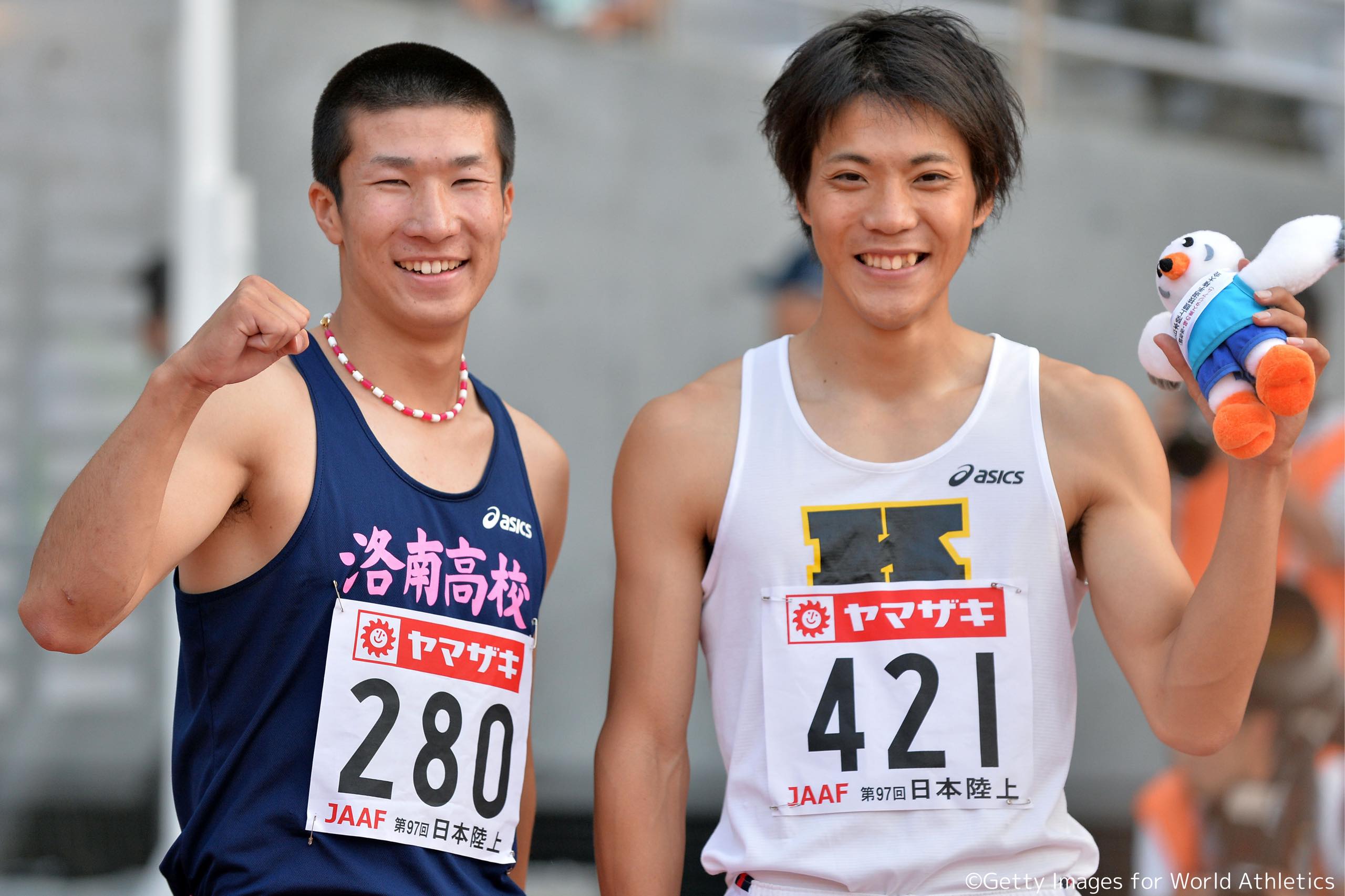
Longtime rivals who both have personal bests in the 9-second range
(Photo from 2013 Japan Athletics Championships)
――Finally, please give a message to our readers who are looking forward to World Athletics Championships Tokyo 25!
It is not often that the World Athletics Championships is held in Tokyo. The last time was in 1991, and I wasn’t even born yet. It is a once-in-a-lifetime opportunity to see the current generation of athletes in live action, and such a chance is rare. I hope you will feel the power of the “real performance”. It may sound strange for me to say this, but please watch how amazing the bodies of athletics athletes are!
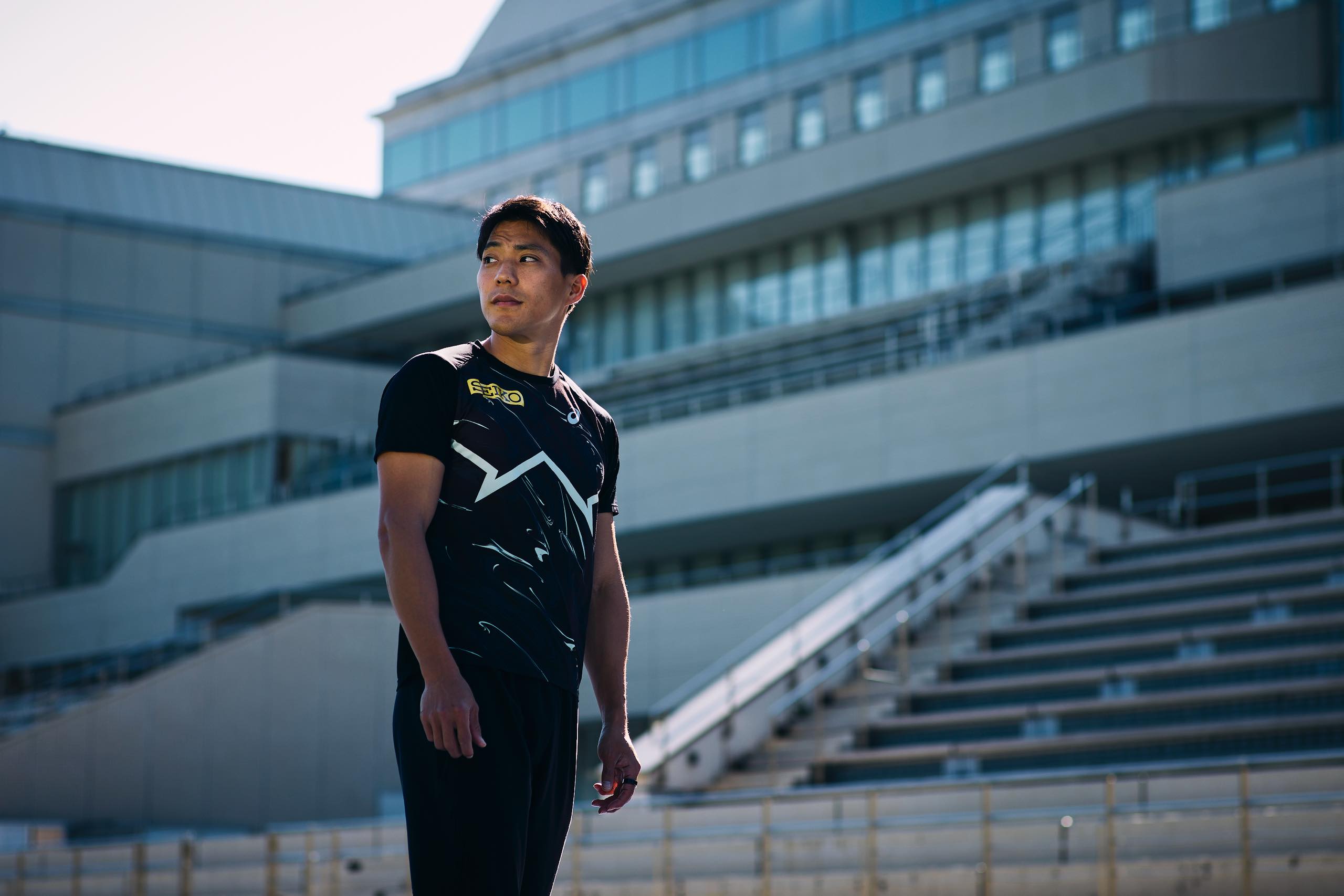
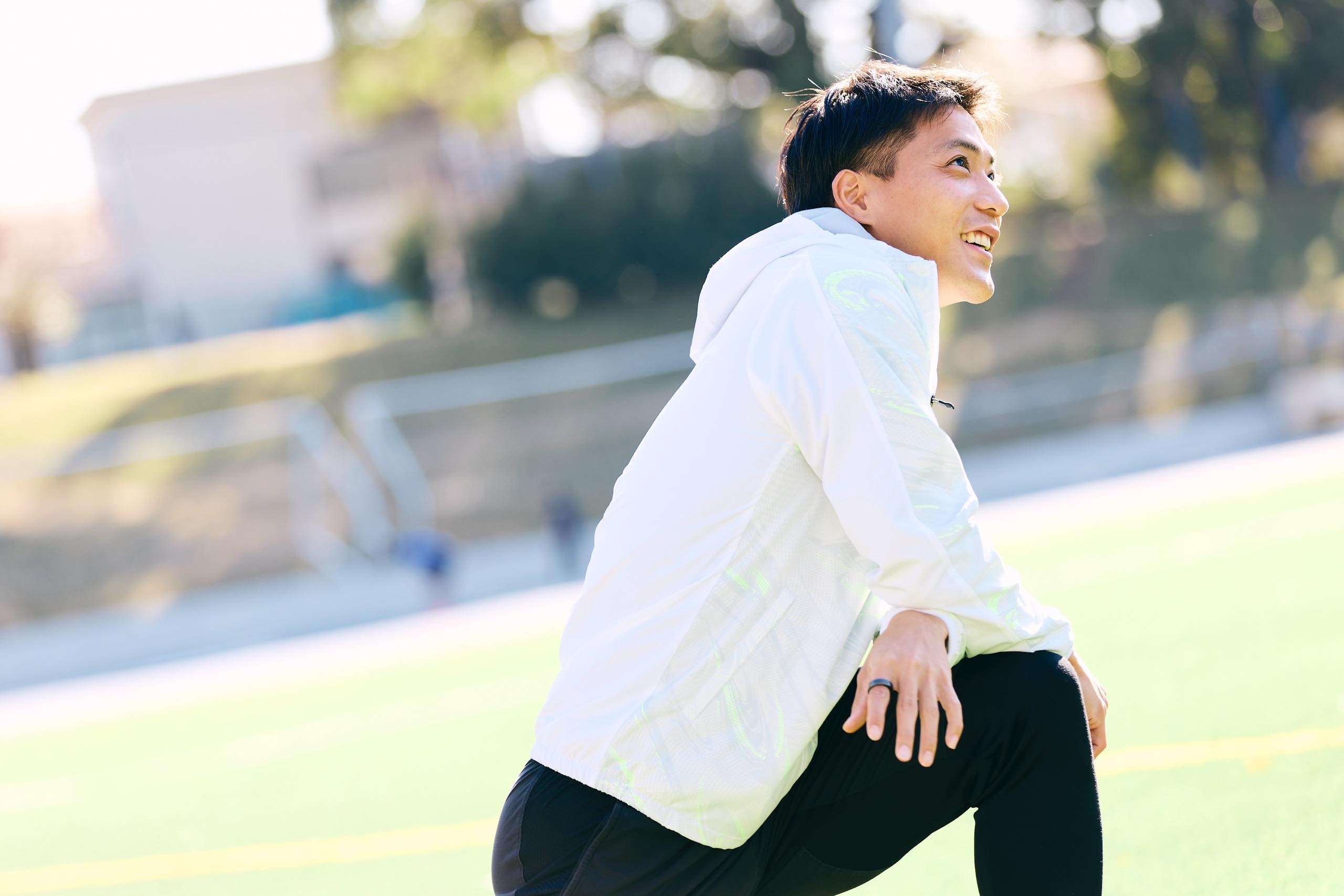
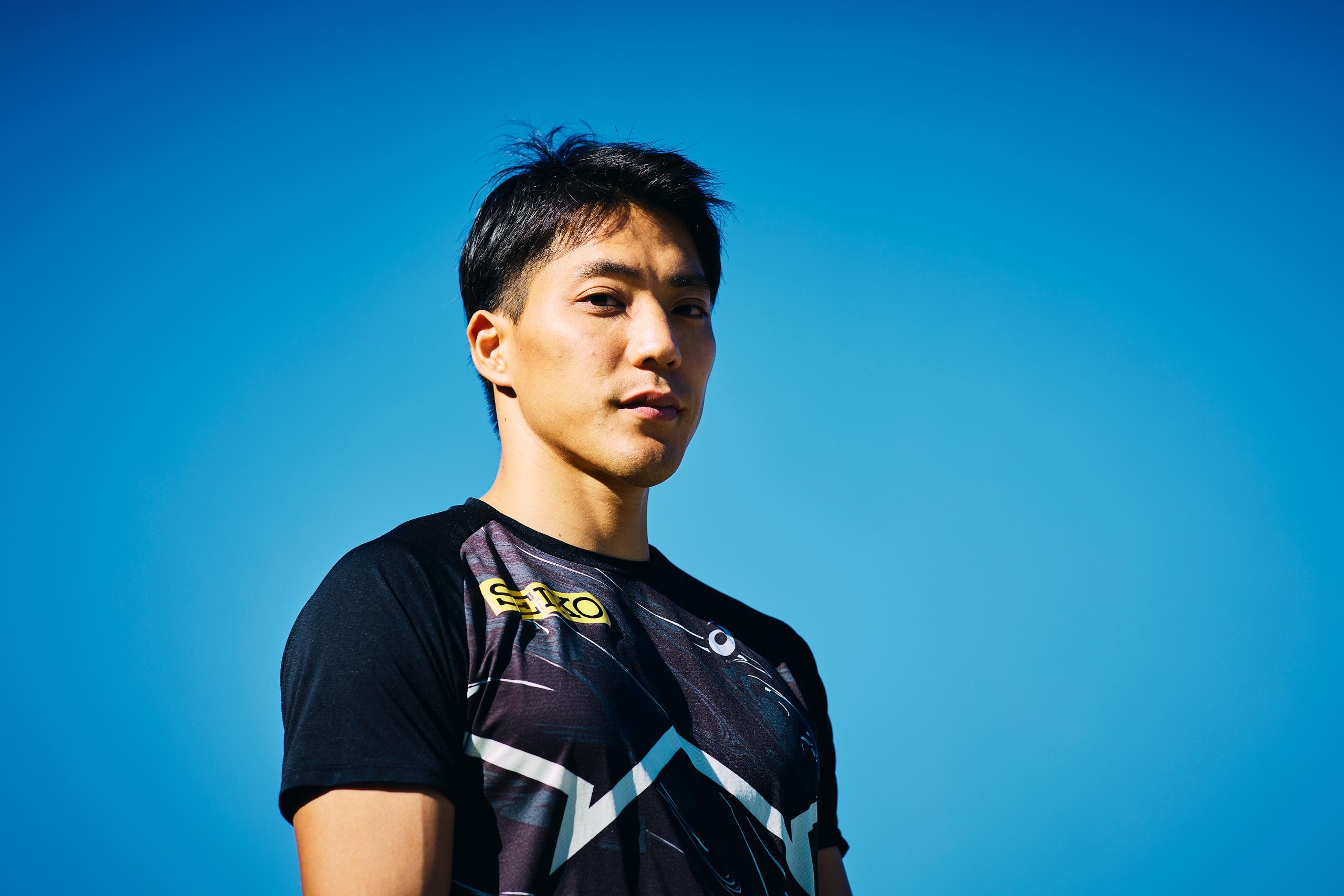
《Team Seiko》
Web:https://www.seiko.co.jp/sports_music/sports/team_seiko/
《SEIKO SPORTS》
X:@sports_seiko
Instagram:seiko_sports
text by Moritaka Ohashi
photographs by Uta Mukuo
Co-produced with the Local Organising Committee of World Athletics Championships Tokyo 25.
